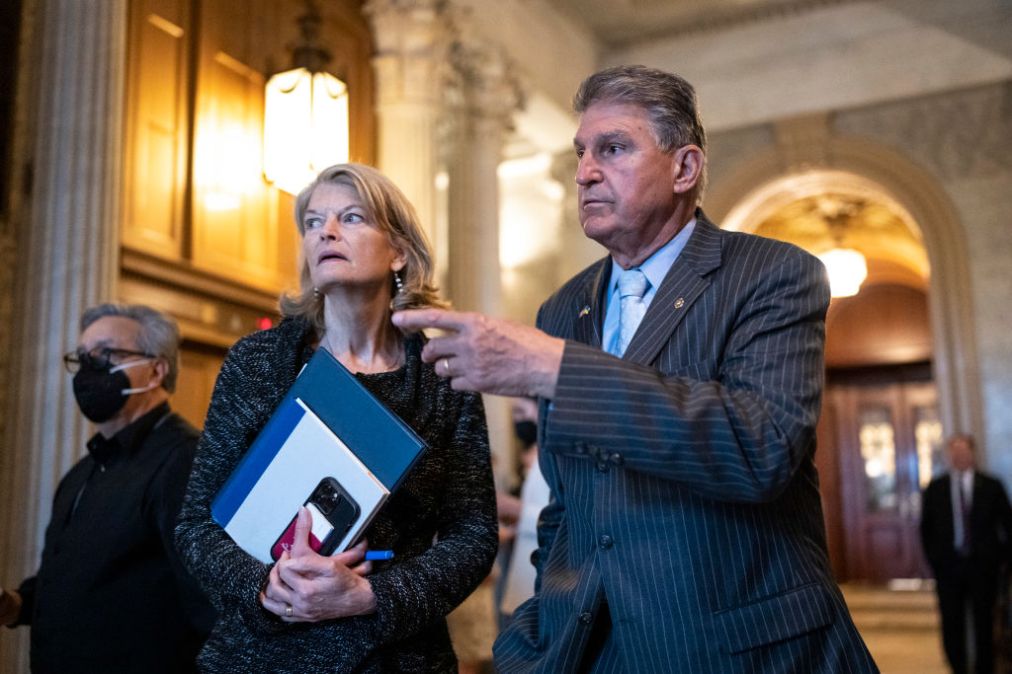Energy Department’s national labs get AI boost in bipartisan Senate bill

A new bill from two of the Senate’s most influential lawmakers on energy policy calls on the Department of Energy to leverage artificial intelligence to advance its science and security missions.
The Department of Energy AI Act from Sens. Joe Manchin, I-W.Va., and Lisa Murkowksi, R-Alaska, would require the DOE secretary to establish an R&D program centered on the aggregation and training of AI datasets, the deployment of advanced computing platforms and infrastructure, the development of safe and trustworthy AI systems and the adaptation of AI models for energy and national security purposes.
“As AI technology takes the world by storm, the United States needs to meet the moment quickly and effectively before our adversaries do,” Manchin, chair of the Senate Energy and Natural Resources Committee, said in a statement. “The DOE and its network of national laboratories are ready and able to bring our nation to the next level of scientific discovery and global competitiveness through the innovation of safe and responsible AI.”
The DOE’s national labs would play an especially critical role under Manchin and Murkowski’s legislation. At least eight multidisciplinary AI research and development centers would be created and operated by some of the 17 national labs, as determined by the Energy secretary.
Those centers would unite experts from the national labs, academia and industry on a variety of “frontier AI research” projects. The centers would also be tasked with establishing a technical roadmap to meet AI research and innovation goals for the agency within seven years of the bill’s enactment. Each center would receive no less than $30 million annually for the entirety of their existence — between five and seven years with the possibility of a five-year renewal.
“This bipartisan legislation will leverage the agency’s existing world-class laboratory test facilities, scientific workforce, and advanced computing resources to strengthen our country’s AI capabilities to remain the superpower of the world in energy, national security, and economic competitiveness,” Manchin said. “Deploying our existing lab infrastructure and scientific expertise for AI instead of starting from scratch will also safeguard taxpayer dollars and allow for us to move quickly.”
The legislation, which would also authorize the agency’s Frontiers in Artificial Intelligence for Science, Security and Technology (FASST) initiative, additionally calls on the Energy secretary to develop a “taxonomy” of AI-related safety and security risks, which includes everything from threats to nuclear weapons systems to critical infrastructure vulnerabilities.
Murkowski, who serves with Manchin as a member of the Senate Energy and Natural Resources Committee, said in a statement that AI also provides capabilities for streamlining the permitting process for critical mineral and large-scale energy projects.
“This legislation will enable the department to harness these emerging technologies so that DOE can be on the front foot to respond to Alaska and America’s science and technological needs,” she said.

